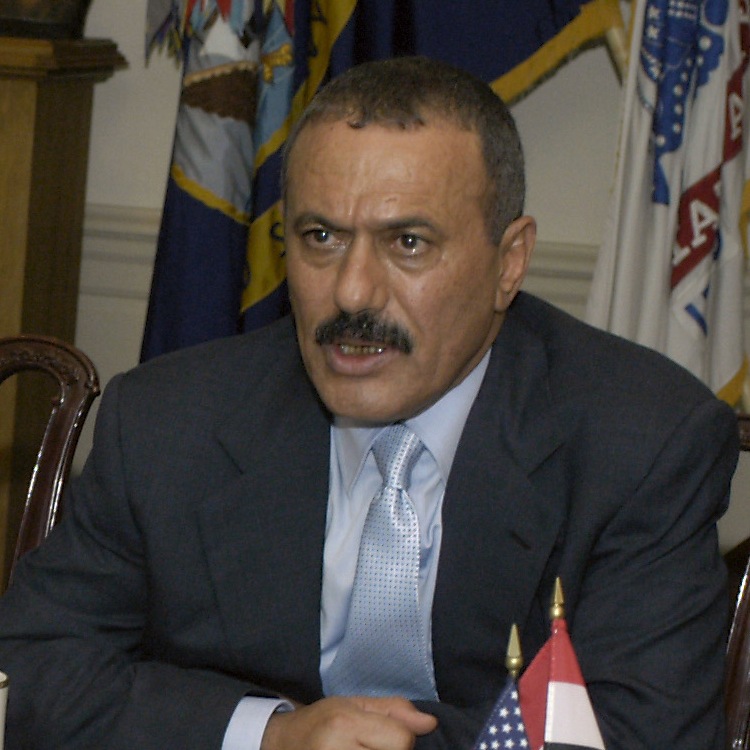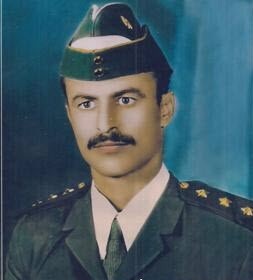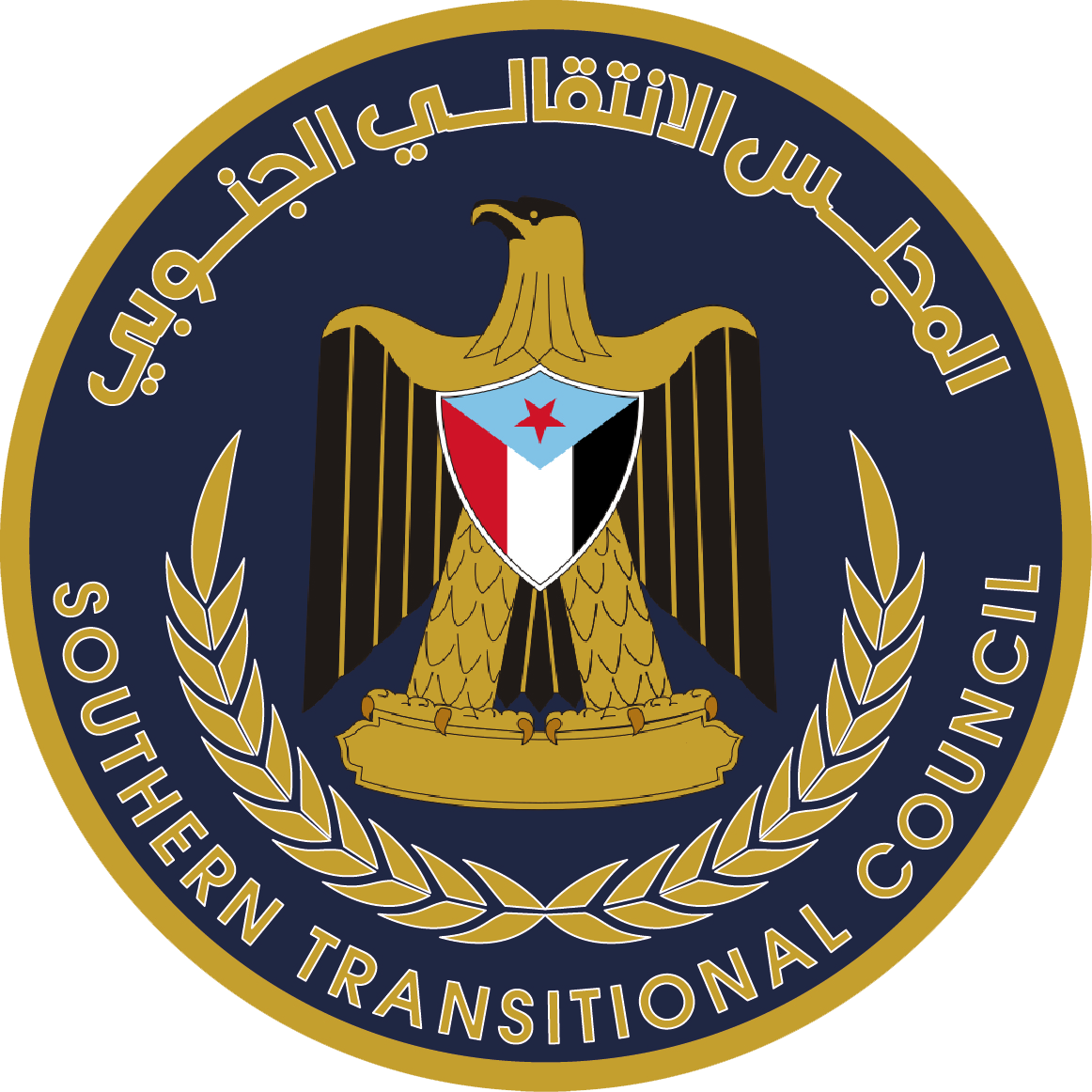|
People's Committees (Yemen)
The Popular Committees (), also known as the People's Committees, are armed groups formed by Yemeni tribes on behalf of more professional armed forces. Overview The Yemeni army has required the support of tribal militias or what have become known as People's Committees in internal and external wars. When the 1962 revolution in northern Yemen did not receive military support from the United Kingdom, some troops allied with the deposed imams to regain power. Tribal links weakened, especially in Taiz and Ibb; members received a monthly salary, wore military uniforms and underwent military training. During the presidency of Abdul Rahman al-Iryani (1967–1974) the military battled over policy, beginning with a conflict over the establishment of the National Council. The "popular committees" further polarized the country. During the 1980s Ali Abdullah Saleh reemphasized tribal affairs, in contrast with assassinated president Ibrahim al-Hamdi. His government clashed with the Hout ... [...More Info...] [...Related Items...] OR: [Wikipedia] [Google] [Baidu] |
Tribes Of Yemen
The Tribes of Yemen are those residing within the borders of the Yemen, Republic of Yemen. While there are no official statistics, some studies suggest that tribes make up about 85% of the population, which was 25,408,288 as of February 2013. Estimates vary, with approximately 200 tribes in Yemen, although some reports list more than 400. Yemen is notable as the most tribal nation in the Arab world, largely due to the significant influence of tribal leaders and their deep integration into various aspects of the state. Many tribes in Yemen have long histories, with some tracing their roots back to the era of the Sheba, Kingdom of Sheba. Throughout history, these tribes have often formed alliances, either to establish or dismantle states. Despite their diverse origins, they frequently share common ancestry. In Yemen, the lineage of the tribe is less important than the alliances it forms. Tribes are far from homogeneous societal structures. While several clans may share a common hi ... [...More Info...] [...Related Items...] OR: [Wikipedia] [Google] [Baidu] |
Yemeni Revolution
The Yemeni revolution (or Yemeni intifada) followed the initial stages of the Tunisian revolution and occurred simultaneously with the 2011 Egyptian revolution and other Arab Spring, Arab Spring protests in the Middle East and North Africa. In its early phase, protests in Yemen were initially against unemployment, economic conditions and corruption, as well as against the government's proposals to modify constitution of Yemen, Yemen's constitution. The protesters' demands then escalated to calls for the resignation of President of Yemen, Yemeni President Ali Abdullah Saleh. Mass defections from the military, as well as from Saleh's government, effectively rendered much of the country outside of the government's control, and protesters vowed to defy its authority. A major demonstration of over 16,000 protesters took place in Sana'a, Sanaʽa, Yemen's capital, on 27 January. On 2 February, Saleh announced he would not run for reelection in 2013 and that he would not pass powe ... [...More Info...] [...Related Items...] OR: [Wikipedia] [Google] [Baidu] |
Organizations Of The Yemeni Crisis (2011–present)
An organization or organisation (Commonwealth English; see spelling differences) is an entity—such as a company, or corporation or an institution (formal organization), or an association—comprising one or more people and having a particular purpose. Organizations may also operate secretly or illegally in the case of secret societies, criminal organizations, and resistance movements. And in some cases may have obstacles from other organizations (e.g.: MLK's organization). What makes an organization recognized by the government is either filling out incorporation or recognition in the form of either societal pressure (e.g.: Advocacy group), causing concerns (e.g.: Resistance movement) or being considered the spokesperson of a group of people subject to negotiation (e.g.: the Polisario Front being recognized as the sole representative of the Sahrawi people and forming a partially recognized state.) Compare the concept of social groups, which may include non-organiza ... [...More Info...] [...Related Items...] OR: [Wikipedia] [Google] [Baidu] |
Institute For International Political Studies
The Institute for International Political Studies (Istituto per gli Studi di Politica Internazionale, ''ISPI''), founded in 1934, is the oldest think tank in Italy. It offers diploma and postgraduate education specializing in international relations. ISPI approaches international affairs in a sound pragmatic manner, monitoring geopolitical areas as well as major global trends. Comprehensive interdisciplinary analysis is ensured by close collaboration with specialists, academic and non-academic, in political, economic, legal, historical and strategic studies and an ever-growing network of think tanks, research centers and universities in Europe and abroad. Its headquarters are in Palazzo Clerici, a splendid example of 18th-century Milanese patrician building which boasts among its treasures the famous room with a Tiepolo fresco. The Institute's activities branch out in four major directions: research, publications, career training and organizations of events. ISPI is an impartial ... [...More Info...] [...Related Items...] OR: [Wikipedia] [Google] [Baidu] |
Battle Of Aden (2015)
The Battle of Aden was a nearly four-month battle in 2015 for the control of Aden, Yemen, between Houthis rebels and Yemen Army forces loyal to Ali Abdullah Saleh on one side, and Yemen Army units loyal to Abdrabbuh Mansur Hadi and Southern Movement militias on the other side. The battle began on 25 March 2015, as pro-Saleh troops seized control of Aden International Airport and Hadi fled the country by boat. On 16 July the pro-Hadi forces again seized control of Aden port and were moving into the city's commercial center. On 22 July, pro-Hadi forces had retaken full control of Aden, and the Aden Airport was reopened. In late July, an offensive launched by pro-Hadi forces drove Houthi forces out of the towns neighboring Aden. Background The Houthis, allegedly with the support of former president Ali Abdullah Saleh, took control of the Yemeni government in a takeover. President Hadi was placed under virtual house arrest, but after a month, he managed to escape to his hometow ... [...More Info...] [...Related Items...] OR: [Wikipedia] [Google] [Baidu] |
Associated Press
The Associated Press (AP) is an American not-for-profit organization, not-for-profit news agency headquartered in New York City. Founded in 1846, it operates as a cooperative, unincorporated association, and produces news reports that are distributed to its members, major U.S. daily newspapers and radio and television broadcasters. Since the award was established in 1917, the AP has earned 59 Pulitzer Prizes, including 36 for photography. The AP is also known for its widely used ''AP Stylebook'', its AP polls tracking National Collegiate Athletic Association, NCAA sports, sponsoring the National Football League's annual awards, and its election polls and results during Elections in the United States, US elections. By 2016, news collected by the AP was published and republished by more than 1,300 newspapers and broadcasters. The AP operates 235 news bureaus in 94 countries, and publishes in English, Spanish, and Arabic. It also operates the AP Radio Network, which provides twice ... [...More Info...] [...Related Items...] OR: [Wikipedia] [Google] [Baidu] |
Yemeni Civil War (2015–present)
Yemeni civil war may refer to several conflicts which have taken place in Yemen: * North Yemen civil war, 1962–1970 * South Yemen civil war, 13–25 January 1986 * Yemeni civil war (1994) * Yemeni civil war (2014–present) Yemeni civil war may refer to several conflicts which have taken place in Yemen: * North Yemen civil war, 1962–1970 * South Yemen civil war The South Yemeni crisis, colloquially referred to in Yemen as the events of '86, was a failed coup d ..., ongoing See also * Insurgency in Yemen (other) * List of wars involving Yemen * Yemen war (other) * Yemeni coup d'état (other) * Yemeni revolution (other) {{disambiguation ... [...More Info...] [...Related Items...] OR: [Wikipedia] [Google] [Baidu] |
Auxiliaries
Auxiliaries are combat support, support personnel that assist the military or police but are organised differently from regular army, regular forces. Auxiliary may be military volunteers undertaking support functions or performing certain duties such as garrison troops, usually on a part-time basis. Unlike a military reserve force, an auxiliary force does not necessarily have the same degree of military training, training or military rank, ranking structure as regular soldiers, and it may or may not be integrated into a fighting force. Some auxiliaries, however, are militias composed of former active duty military personnel and actually have better training and combat experience than their regular counterparts. The designation "auxiliary" has also been given to foreign or allied troops in the service of a nation at war. The term originated with the Latin eponymous relating to non-citizen infantry and cavalry serving as regular units of the Roman Empire. In the context of colonia ... [...More Info...] [...Related Items...] OR: [Wikipedia] [Google] [Baidu] |
Abdrabbuh Mansur Hadi
Abdrabbuh Mansour Hadi (born 1 September 1945) is a Yemeni politician and former military officer who served as the second president of Yemen from 2012 until his resignation in 2022. He previously served as the second vice president of Yemen from 1994 to 2012 under President Ali Abdullah Saleh. Hadi was previously the field marshal of the Yemeni Armed Forces. Between 4 June and 23 September 2011, Hadi was the Acting-president of Yemen while Ali Abdullah Saleh was undergoing medical treatment in Saudi Arabia following an attack on the presidential palace during the Yemeni revolution, 2011 Yemeni uprising. On 23 November, he became Acting President again, after Saleh moved into a non-active role pending the 2012 Yemeni presidential election, presidential election "in return for immunity from prosecution". Hadi was "expected to form a national unity government and also call for early presidential elections within 90 days" while Saleh continued to serve as president in name only. Ma ... [...More Info...] [...Related Items...] OR: [Wikipedia] [Google] [Baidu] |
Al-Qaeda In The Arabian Peninsula
Al-Qaeda in the Arabian Peninsula ( or : Tanẓīm Qā‘idat al-Jihād fī Jazīrat al-‘Arab, . Organization of Jihad's Base in the Arabian Peninsula), or AQAP is a Sunni Islam, Sunni Islamic extremism, Islamist militant organization which seeks to overthrow the Cabinet of Yemen, Yemeni government and establish the Islamic Emirate of Yemen. Part of the al-Qaeda network, the group is based and primarily active in Yemen, while also conducting operations in Saudi Arabia. It is considered the most active of al-Qaeda's affiliates that emerged after the weakening of central leadership. Established in 2009 as a merger between al-Qaeda in Yemen and al-Qaeda of Saudi Arabia, al-Qaeda in Saudi Arabia, the group took advantage of the 2011 Yemeni Revolution to seize and establish several emirates in southern Yemen, including Battle of Zinjibar, in Zinjibar, the capital of Abyan Governorate, Abyan governorate. After being driven out through 2012 Abyan offensive, a government offensive in ... [...More Info...] [...Related Items...] OR: [Wikipedia] [Google] [Baidu] |
Abdullatif Al-Sayed
Abdullatif Al-Sayed Bafaqih (1972 – 10 August 2023) was a Southern Yemeni warlord from Abyan who played a major role during the wars against Al-Qaeda after 2012 in Abyan Governorate. Previously, he joined AQAP for a short period of time in 2011 before defecting from the group the same year and joining the forces of Yemen's internationally recognized President Abdrabbuh Mansur Hadi. Al-Sayed was part of the Southern Movement secessionist movement. War against Al Qaeda When Al-Qaeda came to Zinjibar in early 2011, Sayed joined AQAP, as he was close to an AQAP commander in Abyan, named Abu Ali al-Hadrami. During the Battle of Zinjibar, he defected from AQAP, and his militia joined president Hadi's forces. He came in direct confrontation with al-Hadrami, as he was surrounded in his home village by Al-Hadrami's forces. Later, when the government launched the 2012 Abyan offensive, he battled his former commander, Abu Hamza al-Zinjibari, AQAP's Emir of Abyan, after a planned meet ... [...More Info...] [...Related Items...] OR: [Wikipedia] [Google] [Baidu] |
Al-Qaeda
, image = Flag of Jihad.svg , caption = Jihadist flag, Flag used by various al-Qaeda factions , founder = Osama bin Laden{{Assassinated, Killing of Osama bin Laden , leaders = {{Plainlist, * Osama bin Laden{{Assassinated, Killing of Osama bin Laden(1988–2011) * Ayman al-Zawahiri{{Assassinated, Killing of Ayman al-Zawahiri(2011–2022) * Saif al-Adel(''de facto''; 2022–present) , active = {{nowrap, August 11, 1988 – present , allegiance = {{flag, Taliban (1995–present) , ideology = {{Collapsible list , title={{Nbsp , {{Plainlist, * Sunni Islam, Sunni Islamism{{refn, name=Sunni Islamism, {{cite book, editor1-last=Bokhari, editor1-first=Kamran, editor2-last=Senzai, editor2-first=Farid, year=2013, chapter=Rejector Islamists: al-Qaeda and Transnational Jihadism, chapter-url=https://books.google.com/books?id=ThiuAgAAQBAJ&pg=PA101, title=Political Islam in the Age of Democratization, location=New York, publish ... [...More Info...] [...Related Items...] OR: [Wikipedia] [Google] [Baidu] |





